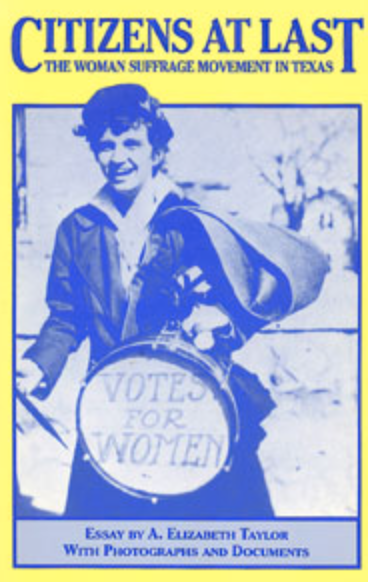As Women’s History Month continues, there’s a remarkable story to be told about the women who documented Texas history and the female scholars who fought to ensure their stories were preserved. The journey of Texas women’s history scholarship represents a vital chapter in how we understand the state’s past, revealing voices that were long relegated to the margins of historical narratives. From early efforts in the 1930s to the research emerging in the early 2000s, the evolution of Texas women’s historical research demonstrates a persistent commitment to uncovering forgotten contributions.
The connection between women and Texas history traces back to the republic’s earliest days. Mary Austin Holley published the first English-language history of Texas in 1836, establishing a precedent for women’s involvement in documenting the state’s story. By the early 20th century, Annie Doom Pickrell’s 1919 “Pioneer Women of Texas” represented one of the first focused efforts to record women’s experiences specifically.
The 1930s saw foundational steps with the establishment of “the Woman’s Collection” at Texas Woman’s University in 1936, creating what would become the nation’s oldest and largest resource collection about women.
Despite these early efforts, women’s perspectives remained largely marginalized in mainstream Texas historical narratives for decades. Jacquelyn Dowd Hall’s groundbreaking 1979 book, “Revolt Against Chivalry: Jessie Daniel Ames and the Women’s Campaign Against Lynching,” marked a pivotal moment by illuminating the intersections of race, class, and gender in a Texas woman’s reform efforts.
This work foreshadowed the surge of interest in women’s history that would emerge in the following decade, setting the stage for a more comprehensive examination of female experiences across Texas’s diverse communities.
The 1980s witnessed unprecedented momentum in documenting Texas women’s history. In 1980, the Texas Women’s History Project Bibliography was published, cataloging primary and secondary sources about women in Texas with support from the Texas Committee for the Humanities.
This groundwork enabled the creation of “Texas Women: A Celebration of History” in 1981, a pioneering traveling exhibit that brought recognition to both famous and unsung women throughout the state’s history. The exhibit’s development involved numerous dedicated historians, including Ruthe Winegarten, Janelle Dupont, and Mary Beth Rogers, whose collaborative efforts created a model for women’s history projects nationwide.
Institutional support grew substantially during this period. The Texas State Historical Association’s New Handbook of Texas revision project began in 1984 with a dedicated three-year research assistantship in women’s history, funded by Texas Woman’s University and Women’s Resources. This initiative provided crucial opportunities for emerging scholars like Judith McArthur, Nancy Baker Jones, and Teresa Palomo Acosta to conduct original research about women’s lives.
Additionally, Julia Kirk Blackwelder’s 1984 publication “Women of the Depression: Caste and Culture in San Antonio, 1929-1939” demonstrated the growing academic interest in examining women’s experiences through intersectional lenses of gender, class, and ethnicity.
The 1990s marked a period of organizational growth and expanding scholarship in Texas women’s history. Following the 1990 statewide conference “Women and Texas History” in Austin, the Texas Women’s History Network was established in 1991. This organization fostered ongoing connections between researchers, holding annual meetings and conferences to stimulate new scholarship.
The conference also produced tangible results with the 1993 publication of “Women and Texas History: Selected Essays,” edited by Fane Downs and Nancy Baker Jones, which showcased the maturing field of study.
Institutional infrastructure continued to develop during this decade, with the University of Texas at San Antonio creating the Center for the Study of Women and Gender in 1994. Under Linda Schott’s leadership, the center established its own Archive for the Study of Women and Gender, providing critical resources for researchers.
Collaborative projects flourished, including the 1996 video “Getting Where We’ve Got to Be: The Story of Women in the Texas Legislature,” which documented female political leadership in the state. These developments reflected the growing recognition that women’s history required dedicated institutional support and interdisciplinary approaches.
The early 2000s represented a significant period of Texas women’s historical scholarship, with several landmark publications appearing in quick succession. In 2000, “Capitol Women: Texas Female Legislators, 1923-1999” by Ruthe Winegarten and Nancy Baker Jones provided the first comprehensive history of women in the Texas Legislature.
This was followed in 2003 by two important works: “Las Tejanas: 300 Years of History” by Teresa Palomo Acosta and Ruthe Winegarten, which chronicled Hispanic women’s experiences across three centuries, and “Minnie Fisher Cunningham: A Suffragist’s Life in Politics” by Judith N. McArthur and Harold L. Smith, offering scholarly insight into one of Texas’s most influential political figures.
Despite these significant achievements, historians recognized that much work remained to be done. The New Handbook of Texas, published in 1996, included numerous entries about women, but ongoing research was needed to maintain comprehensive coverage. As Nancy Baker Jones noted in 2017, the field had made tremendous progress but still faced the challenge of documenting many untold stories.
The early 2000s publications demonstrated both the maturation of the field and the continued need for expanded research, particularly regarding women from diverse racial, ethnic, and socioeconomic backgrounds whose experiences remained underrepresented in the historical record.






